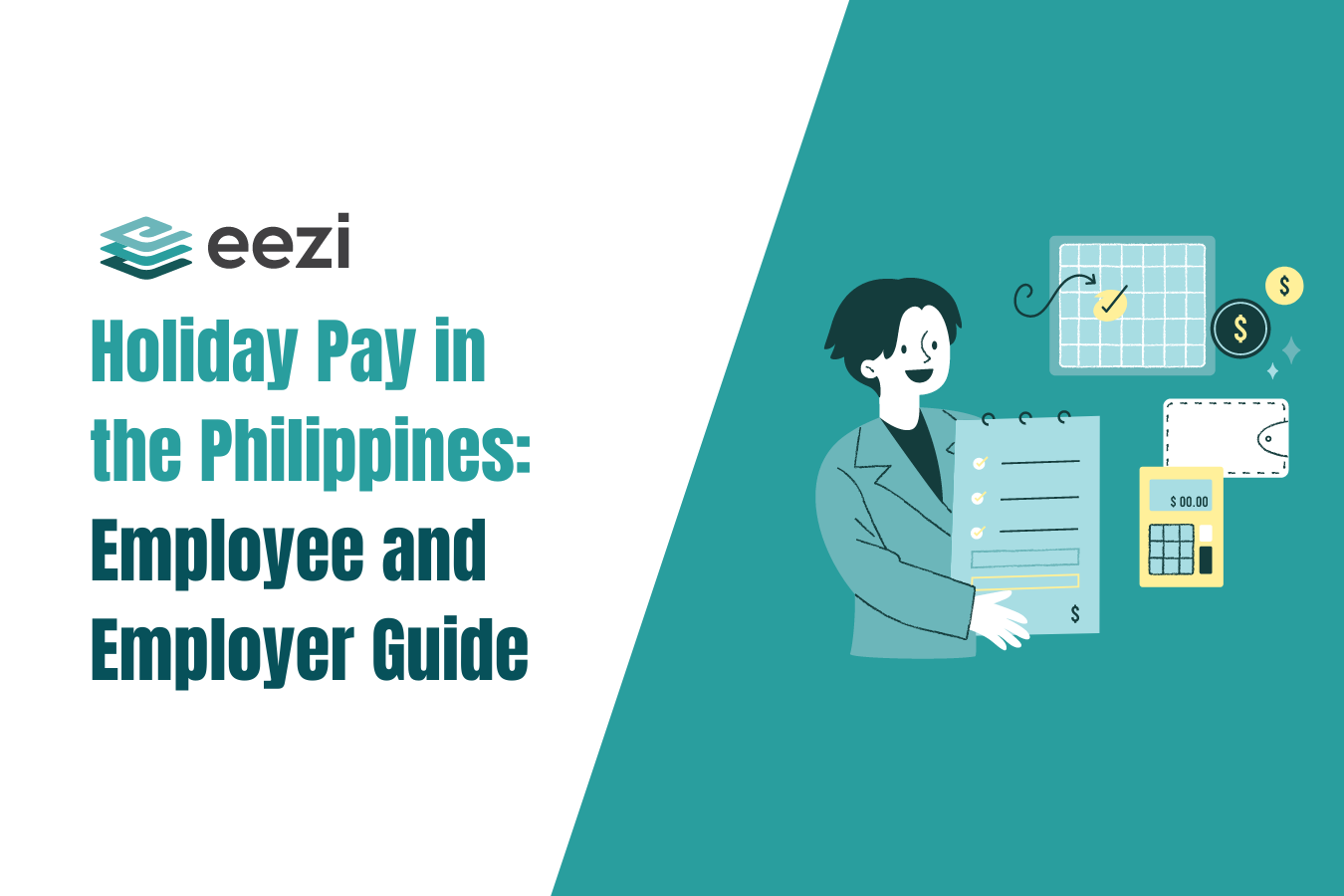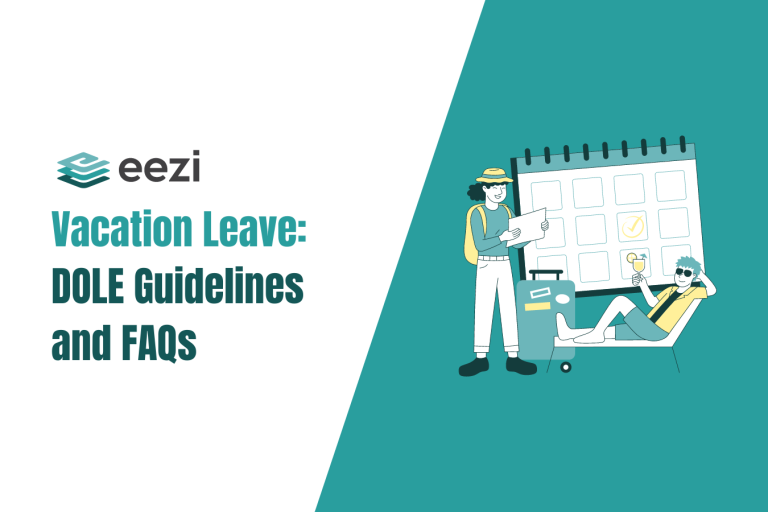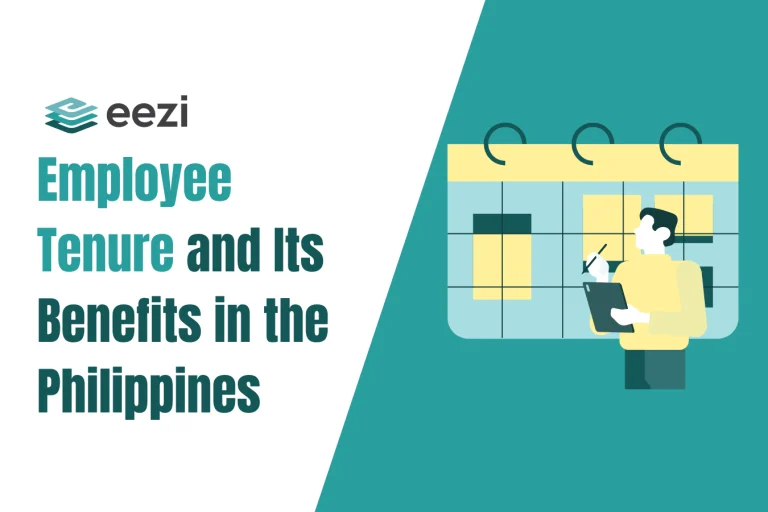What are the 2024 holiday pay rules in the Philippines?
Key Points
- A regular holiday is a non-working holiday declared by the government and implemented on a national level. Moreover, it is a paid day off where employees get 100% of their salary. Employees who work during regular holidays get 200% of their salary.
- A special non-working holiday often commemorates special events and local celebrations. Whether employees get paid time off during this day depends on the employer. However, employees who work get an additional 30% of their daily rate.
- A special working holiday commemorates events and celebrations, but it is not a time off. Workers who do not work on this day are considered absent.

Holidays are special days that everyone looks forward to, especially students and employees. Often, this is a chance to take a break from work or school, rest, relax, and maybe engage in extracurricular activities.
For employees, it is not only a break from work but an opportunity to earn just a little bit more than the normal rate given during regular workdays.
What is holiday pay?
Holidays are special days that require employees to give extra pay for employees for working on such days. Therefore, it is a premium pay employees receive for the work they’ve done during a holiday.
The amount of pay depends on the type of holiday, the basic daily wage of the employee, and the amount of time consumed working on such a holiday.
Employers have particular duties to comply with the standards enacted by the Philippine Labor Code, particularly those governing how to pay their employees on holidays in the Philippines.
Importance of holiday pay
Adhering to the country’s holiday compensation rules is an important aspect of the corporate environment. As an employer, you have a responsibility to pay your employees properly to prevent you from being penalized for violating the holiday rules enforced by the country’s Labor Code and to avoid wage disputes with your employees. Conversely, as an employee, you have the right to be fairly compensated if you choose to work on a holiday for a pay bonus.
Companies can partner with a HR and payroll software company like eezi to ensure that holiday compensation are paid accurately and on schedule. These firms also provide regular information on forthcoming holiday compensation or taxes.
What are the different types of holidays in the Philippines?
There are two major types of holidays in the Philippines: the regular holidays and the special non-working holidays. Below are the lists of all holidays in the Philippines:

Regular holiday
A regular holiday is one that is legally recognized as a national and public holiday and is mandated by law.
Regular holidays meaning
Regular holidays in the Philippines, also known as “legal holidays” or “regular non-working holidays,” are specific dates marked by the government. These days commemorate significant events, historical figures, or cultural traditions. Moreover, these holidays are observed nationwide, and employees are entitled to a day off with pay even if they don’t work.
Furthermore, government and public offices and institutions typically close down during regular holidays. However, working on regular holidays guarantees the highest pay rate. As per Republic Act No. 9492 covering the celebration of national holidays, here is the list of regular holidays in the Philippines:
Regular or Legal Holidays in the Philippines
- New Year’s Day: January 1 of each year
- Maundy Thursday: Movable date, on the first Thursday after Palm Sunday
- Good Friday: Movable date, right after Maundy Thursday
- Eid ul-Fitr: A movable date, the President typically makes a declaration regarding the celebration of Eid ul-Fitr every year
- Eid al-Adha: A movable date, the President typically makes a declaration regarding the celebration of Eid al-Adha every year
- Araw ng Kagitingan: April 9 or the Monday closest to April 9
- Labor Day: May 1 or the Monday nearest to it
- Independence Day: June 12 or the Monday nearest to it
- National Heroes Day: Last Monday of August
- Bonifacio Day: November 30 or the Monday closest to November 30
- Christmas Day: December 25
- Rizal Day: December 30 or the Monday closest to it
eezi HR Guide
Learn how to make a simple yet compliant pay slip for your employees.
Read More: 2024 Holidays in the Philippines

Special non-working holiday
A special non-working holiday is one that the national or local government declares for events, celebrations, or commemorations.
Special non-working holiday meaning
Special non-working holidays are distinct from regular or legal holidays in the Philippines. These days are typically declared by the government to commemorate localized events, special occasions, or cultural celebrations. Moreover, these vary by local government or authorities for specific areas or communities.
Special non-working holidays are a recognized part of the Administrative Code and other laws, with Filipinos observing them regularly each year. The key distinction in terms of payroll lies in the amount of pay employees receive for working on a special non-working holiday compared to regular holidays.
Special non-working holidays in the Philippines
As per the publication of Republic Act No. 9492, here is the recognized list of Special Non-working holidays:
- Ninoy Aquino Day – celebrated on August 21 or the Monday nearest August 21
- All Saints Day – celebrated on November 1
- Last Day of the Year – celebrated on December 31
However, over the past years since the publication of Republic Act No. 9492, the following special working holidays have been part of the list:
- EDSA People Power Revolution Anniversary: February 25 (Movable on the Friday or Monday nearest February 25 if it lands on the weekend)
- Black Saturday – Movable date, on the Saturday immediately preceding Easter
- Feast of the Immaculate Concepcion of Mary – December 8
Special working holiday
Special working holidays are not the same as the holidays provided by law. As such, they are also not rest days.
Special working holiday meaning
A special working holiday in the Philippines is one the government declares for a specific purpose or event. Unlike regular holidays or special non-working holidays, a special working holiday requires employees to work on that day without the obligation of granting them additional pay.
The primary focus of this type of holiday is to encourage employees and employers to participate in activities related to the declared event or occasion. Typically, special working holidays are government declarations as compensation for missed workdays due to calamities and disasters or for holidays that fall on weekends.
In payroll, special working holidays are like ordinary working days. As such, there is no additional or premium pay.
eezi HR Guide
Learn the efficient ways to set up your HR department.
Who is entitled to holiday pay benefits?
Generally speaking, employees who have rendered service for at least one (1) month to their current employer or company are entitled to receive holiday pay Philippines. However, like with any rule, there are exemptions.
Not all employees can receive holiday pay. Individuals belonging to the following categories are exempt from receiving holiday pay:
- Government employees
- Managerial employees described by the labor code
- Managerial staff members and officers described by the labor code
- Employees of retail and service establishments regularly employing less than ten (10) employees
- Domestic helpers and persons in the personal service of another
- Employees engaged on contract, task, or purely commission basis
- Field personnel and other employees whose performance and time are not under employer supervision
Employees entitled to holiday pay benefits must be present or on authorized paid leave on the workday immediately preceding the holiday to receive the pay.
Who is not entitled to holiday pay in the Philippines?
In the Philippines, certain individuals may not be entitled to holiday pay. Excluded from this pay entitlement are employees who did not work on the holiday, those who are on leave without pay on the day immediately preceding the holiday, and those on leave of absence with pay.
Additionally, individuals engaged on a task or contract basis, as well as those paid on a purely commission, boundary, or task basis, are generally not entitled to this pay unless there is a collective bargaining agreement or company policy stating otherwise.
What are the holiday pay rules in the Philippines for issuing and computing pay?
The holiday pay rules in the Philippines for computing holiday pay rate vary. Furthermore, this depends on whether it is a regular holiday or a special non-working holiday.
How to compute regular holiday pay?
If Unworked
If the employee does not work on a regular holiday, such as January 1 holiday, they are still entitled to receive their full daily basic wage. However, this can change if there is an existing company policy or collective bargaining agreement allowing for additional payment on unworked regular holidays. The holiday pay computation for this scenario is as follows:
Unworked Regular Holiday pay = daily basic wage x 100%
If Worked
Suppose the regular holiday falls on a normal workday. In that case, for the first eight hours of service rendered, the employee should receive 200% of their daily basic wage. This is on top of the Cost of Living Allowance or COLA. This is also referred to as double pay. The double pay meaning is twice the usual rate of payment for a job. It is computed as shown below:
Worked Holiday pay = (daily basic wage + COLA) x 200%
If the employee works for more than eight hours on a regular holiday that falls on a normal workday, they are entitled to 30% more than their basic hourly rate on top of the double pay. The computation for overtime pay is as follows:
Regular Holiday Overtime Pay = hourly rate x 200% x 130% x number of hours worked in excess of eight hours
Suppose the regular holiday falls on the employee’s scheduled rest day. In this case, the employee should receive 30% of double their basic daily rate. In addition, they also get plus 200% of their basic daily rate. The holiday pay computation is as follows:
Regular Holiday Pay = [(basic daily wage x 200%) x 30%] + [(basic daily wage + COLA) x 200%]
Suppose the employee works for more than eight hours on a regular holiday that falls on that employee’s rest day. In this case, the employee should receive holiday pay amounting to 30% on top of the overtime pay given on regular days that occur on normal workdays.
Furthermore, the overtime pay computation is as follows:
Regular Holiday Overtime Pay = hourly rate x 200% x 130% x 130% x number of hours worked in excess of eight hours
How to compute special non-working holiday pay?
If Unworked
The rule “no work, no pay” applies to an unworked special non-working holiday. As such, employees who do not report for work during said days like Nov 1 holiday in Philippines by default should not receive their basic pay and holiday pay. However, the company may have a collective bargaining agreement (CBA) granting payment on an unworked special non-working holiday.
If Worked
Suppose the special non-working holiday falls on a normal workday. In that case, for the first eight hours of work, the employee should get an additional 30% on top of their basic wage plus COLA. The special holiday computation for this is as follows:
Special Non-Working Holiday Pay = (basic wage + COLA) x 130%
Suppose the employee works for more than eight hours. In this case, they should receive 30% on top of their basic hourly rate. Furthermore, this is multiplied by 30%. The overtime pay computation is as follows:
Special Non-Working Holiday Overtime Pay = basic hourly rate x 130% x 130% x number of hours worked
Suppose the special non-working holiday occurs on the employee’s rest day for the first eight hours of service. In this case, the employee shall receive 50% more than their basic wage + COLA. The complete formula for the computation is as follows:
Special Non-Working Holiday Pay = (basic wage + COLA) x 150%
Suppose the employee works overtime on the special non-working holiday that falls on their rest day. In this case, the employee shall be paid an additional 30% on top of the 50% on their basic hourly rate. The computation for this is as follows:
Special Non-Working Holiday Overtime Pay = hourly rate x 150% x 130% x number of hours worked
Is holiday pay taxable?
Only minimum-wage earners (MWE) are exempt from withholding taxes on holiday pay. This applies to night differential pay, overtime pay, and hazard pay earned by a minimum-wage earners.
Raise employee retention with eezi
Holiday pay is one of the employee motivators. Make sure you are paying your employees the correct amount with eezi and encourage them to stay.
Avoid confusion on regular and special holiday pay computations. Let eezi Payroll do the job, and you can put your feet up and chill! Try eezi now!



